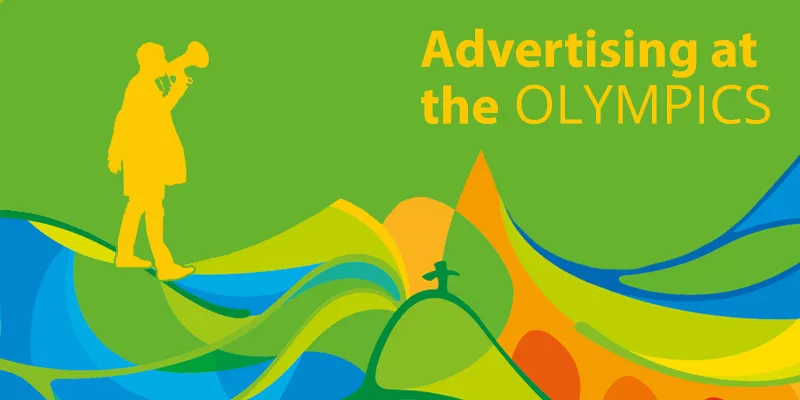How the Olympics' New Advertising Rules will impact athletes and brands in Rio
A massive change is taking place in the world of advertising this year with the onslaught of the Rio Olympics. The International Olympic Committee (IOC) has shaken up the rigid rules it has followed for years, opening its doors to non-official sponsors so they too can benefit from their ties to the much-awaited event of the year.
Previously, the IOC would swear by its ‘Rule 40’, where athletes taking part in the Olympics were barred from tweeting about non-official sponsors, and non-sponsors were not allowed to feature Olympics athletes, whom they had sponsorship deals with, in the ads. However, this was protested against by a majority of the athletes and concerned brands, as they claimed that the old rule deprived them of commercial attention and income during their most marketable moments. As a response to this, the IOC finally decided to let its hair down in early February last year, when they announced the changes to the rule for the first time. These changes were then adopted by the U.S. Olympic Committee (USOC) in June, 2015. They stated that athletes could now tie-up with non-official brands and advertise with them and could even tweet and promote them.

However, there are restrictions under these newly changed advertising rules that aim at retaining some exclusivity for official sponsors like Coca-Cola, Visa and McDonald’s. Under the new rules, the USOC is banning unofficial sponsors from using words such as ‘Olympics’, and even ‘summer’, ‘victory’, and ‘effort’ in some contexts. This is being championed by the collective forces of the official sponsors, who aren’t thrilled about having to share the big names with brands that have paid nothing to either the IOC or the USOC.
However, this doesn’t pose a big problem for the non-official brands looking to tie up with the Olympics athletes for better promotion, since the average consumer will not be able to tell the difference between their ads and a sponsored ad, considering both feature the same well-known Olympics athlete.
“When you see Michael Phelps' face in an ad, you automatically think of the Olympics, even if there's no mention of it or any rings,” says David Abrutyn, Executive Vice-President at Bruin Sports Capital, referring to the 22-time U.S. Olympic medallist who is the proud winner of 18 gold medals (as stated in Reuters).
However, this could work in reverse with the top sponsors making use of these new changes, to argue for better pricing for top sponsorship deals. According to Frank Ryan, head of intellectual property at DLA Piper, “change to the IOC's ‘Rule 40’ could have a big impact on the multi-billion-dollar marketing engine that drives the Games.” Another clause that these changes emphasise is the fact that the US athletes and non-sponsor brands had to submit ‘waivers’ to the USOC by January 2016 that included revealing plans of advertising and running social media campaigns, while also having its ads be in-market by March. This will thus give the USOC enough time to approve, refuse or ask for changes on the submitted advertising before the Olympics start.
To Sally Bergesen, Founder and CEO of Oiselle, the new rule “is a joke.” “You had to have submitted your campaign in January, before anybody's qualified for anything. Then, you need to start running your campaign in March, so you don't get any timing benefit with the Olympics. For small businesses, running an ad campaign from March through August is really expensive," she says (as stated in ‘AdWeek’).
However, analysts think that the non-sponsor brands and smaller businesses should be viewing the relaxed Rule 40 as a great opportunity. Even if the smaller companies cannot manage to secure a big-name athlete, they can pick from among a 100 different ones who are easier to grab a hold of to feature in their promotional ads. According to Lisa Baird, chief marketing officer of the USOC, the new rule allows athletes to continue their promotional relationships with brands for the long term period following the event. The non-official advertisers are given the freedom to mention that their athletes are Olympians since it is mostly common knowledge. However, according to the website, the brand applications have a greater chance of being approved, if the Olympic reference is ‘balanced with non-Olympic achievements’. This is another step initiated to look after the interests of the sponsored brands.
Tina Davis, head of corporate sponsorships at Citigroup Inc., an official sponsor for the Rio Olympics 2016, said that she was counting on the efforts of the USOC to guarantee that the new rules didn’t hamper the rights of the official Olympic partners. “This is the first year so I'm sure there will be lessons learned,” she said.
Reuters reports that seventeen official USOC sponsors have their sponsorship agreements up for renewal after Rio, according to the USOC. Most brands, be it official or not, are in either case looking to implement and execute prolific brand strategies and campaigns, which include great concepts centring around Olympic athletes, to best grasp the attention of the consumer.







